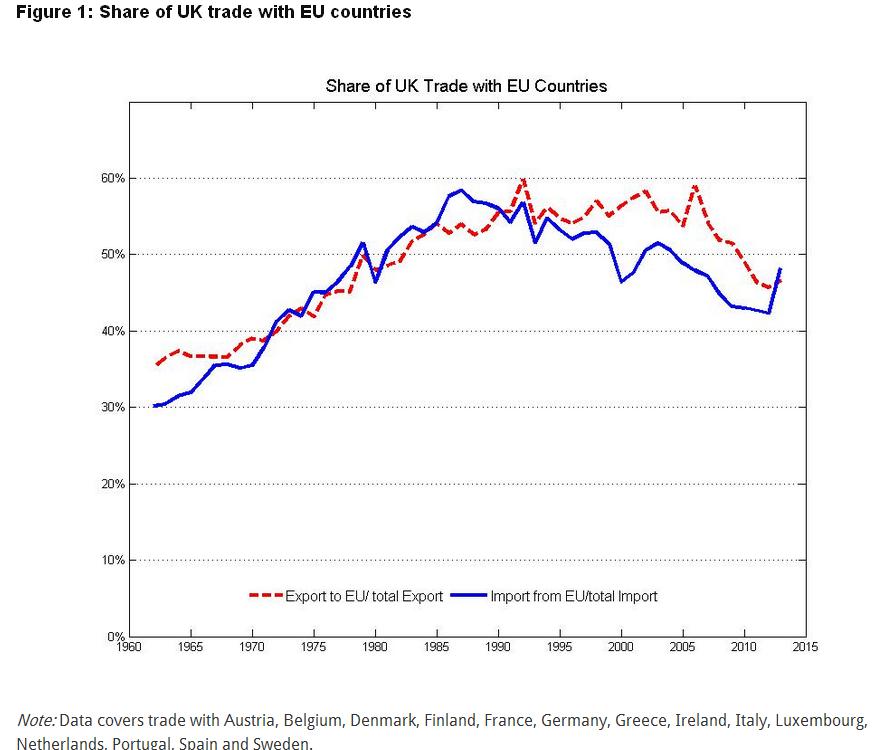Dhingra, S., Ottaviano, G. & Sampson, T. (2015) “Should the UK stay or go? The economic consequences of Britain leaving the EU“, LSE EUROPP, 24 March.
How would a British exit from the EU affect the UK’s economy? Swati Dhingra, Gianmarco Ottaviano and Thomas Sampson outline the economic consequences of a Brexit, writing that reduced integration with EU countries is likely to cost the UK economy far more than is gained from lower contributions to the EU budget.
The direction of UK trade policy with its biggest trade partner – the EU – will be decided in the upcoming general election. The Conservatives are committed to holding an ‘in-or-out’ referendum on membership by 2017 while Labour and the Liberal Democrats have opposed this, but how would Britain’s exit from the EU affect the UK economy and the income of UK citizens?
Brexit would harm the UK economy primarily by reducing trade with EU countries. Leaving the EU would also prevent the UK from benefiting from future free trade agreements negotiated by the EU, such as the Transatlantic Trade and Investment Partnership currently being negotiated with the United States. Finally, Brexit would reduce the attractiveness of the UK for foreign companies.
Jumping off the trade train
The best understood channel through which Brexit would affect the UK economy is via changes in UK trade. EU membership has reduced trade barriers between the UK and EU countries, leading to increased trade. When the UK joined the European Economic Community in 1973, just over 30 per cent of UK exports went to the EU. By 2008, over 50 per cent of UK exports went to EU countries (see Figure 1).
Relevant posts:
- Murkens, J. (2015) “A referendum on Britain’s EU membership is a sure fire way to encourage the breakup of the UK“, LSE EUROPP, 02 March.
- Campos, F. N. & Coricelli, F. (2015) “Why did Britain join the EU? A new insight from economic history“, VoxEU Organisation, 03 February.
- Michael White, Larry Elliott & Charlotte Higgins: “What if Britain left the EU?“, The Guardian, 04 November 2014.




